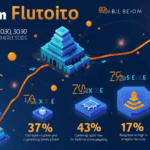Introduction
As digital assets continue to gain traction worldwide, the need for a robust legal framework is more pressing than ever. In Vietnam, the landscape is shifting, creating opportunities for investors.
The explosive growth of cryptocurrencies in Vietnam—highlighted by a staggering increase in users, which rose by 600% just in 2023—raises questions about regulation, safety, and compliance. This article delves into Vietnam’s Security Token Offerings (STO) legal framework, offering insights into its implications for digital asset protection and investor safety.
Understanding the STO Concept
Security Token Offerings (STOs) are a type of fundraising mechanism that involves issuing tokens backed by real-world assets, providing a more regulated alternative to Initial Coin Offerings (ICOs). In the context of Vietnam, navigating the STO landscape requires a solid understanding of local regulations.

- STOs involve compliance with securities regulations, ensuring investor protections similar to traditional finance.
- They can represent equity, debt, or other financial instruments.
- This format invites institutional investment, which is crucial for Vietnam’s emerging economy.
The Legal Environment in Vietnam
Vietnam’s legal stance on STOs is evolving as regulators recognize the potential of blockchain technology. Regulatory bodies are working to create a framework that accommodates both innovation and investor protection.
One key development is the draft amendment to the Law on Securities, which aims to include provisions specifically relating to Blockchain and digital assets. This can be seen as a response to the burgeoning growth of digital currencies and the pressing need for clear regulations.
Key Regulatory Frameworks
Several government agencies are central to enforcing the legal framework surrounding STOs:
- The State Securities Commission (SSC): This body oversees securities-related activities and is instrumental in drafting regulations for digital assets.
- Ministry of Finance (MoF): The MoF plays a key role in financial regulation, collaborating with the SSC to simplify compliance for IT companies.
- Central Bank of Vietnam (CBV): The CBV is crucial in establishing regulations that balance innovation with financial stability.
The Role of Blockchain Technology in Vietnam
Blockchain technology underpins the entire STO ecosystem, offering unprecedented security and transparency for transactions. With more than 70 blockchain startups emerging in Vietnam in the past year alone, it’s clear that this technology has potential.
In addition, other sectors like supply chain management and real estate are looking to blockchain to revolutionize their operations, which could be a strong signal for regulators to develop a comprehensive framework.
Key Challenges Facing STOs in Vietnam
While the legal groundwork is being laid, several challenges remain:
- Lack of Clarity: The current regulatory framework around STOs remains ambiguous, leaving many startups unclear on compliance requirements.
- Investor Education: Many potential investors lack understanding of digital assets and prefer traditional investments.
- Technological Adaptation: Businesses must invest in technology to ensure compliance and security in their offerings.
Strategies for Navigating Vietnam’s STO Legal Framework
Here are a few strategies for potential investors and startups to navigate the evolving landscape:
- Stay informed about legislative changes that affect STOs and digital asset regulations.
- Engage with legal experts who specialize in blockchain technology and securities law.
- Consider investing in education to better understand how to audit smart contracts and evaluate their security implications.
The Future of STOs in Vietnam
Experts predict a vibrant future for STOs in Vietnam as regulatory clarity improves:
- Institutional investment is likely to rise as the legal landscape stabilizes.
- Innovation in financial technology could lead to new investment avenues for Vietnamese entrepreneurs.
- The potential for Vietnam to become a leader in Southeast Asia in the blockchain space is significant.
According to recent data from Chainalysis, Vietnam ranks among the top countries in crypto adoption globally. This presents a compelling case for regulatory bodies to expedite the finalization of the legal framework governing STOs.
Conclusion
In conclusion, Vietnam’s STO legal framework is in its infancy but poised for rapid growth. As regulations tighten and clarity emerges, stakeholders—including investors and startups—must prioritize understanding compliance and the associated risks and rewards.
By embracing this shift and contributing to the regulatory dialogue, Vietnam can enhance its position in the global blockchain economy, unlocking tremendous potential.
Engaging with reputable sources such as hibt.com for updates and guidance will be crucial for anyone looking to engage in the Vietnamese crypto market.
As always, it’s important to remember that this is not financial advice. Consult local regulators and legal advisors when navigating these complexities.





